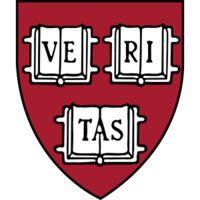Request Demo
Last update 08 May 2025
CK1α x IKZF2
Last update 08 May 2025
Related
2
Drugs associated with CK1α x IKZF2Target |
Mechanism CK1α inhibitors [+1] |
Active Org. |
Originator Org. |
Active Indication |
Inactive Indication- |
Drug Highest PhasePreclinical |
First Approval Ctry. / Loc.- |
First Approval Date20 Jan 1800 |
Target |
Mechanism CK1α inhibitors [+1] |
Active Org. |
Originator Org. |
Active Indication |
Inactive Indication- |
Drug Highest PhasePreclinical |
First Approval Ctry. / Loc.- |
First Approval Date20 Jan 1800 |
100 Clinical Results associated with CK1α x IKZF2
Login to view more data
100 Translational Medicine associated with CK1α x IKZF2
Login to view more data
0 Patents (Medical) associated with CK1α x IKZF2
Login to view more data
3
Literatures (Medical) associated with CK1α x IKZF228 Dec 2023·Journal of Medicinal ChemistryQ1 · MEDICINE
Design and Development of IKZF2 and CK1α Dual Degraders
Q1 · MEDICINE
Article
Author: Kharas, Michael G ; Park, Sun-Mi ; Stavropoulos, Alexios ; Miyamoto, David K ; Curnutt, Nicole M ; Woo, Christina M
01 Apr 2023·Cancer Cell
Dual IKZF2 and CK1α degrader targets acute myeloid leukemia cells
Article
Author: Schurer, Alexandra ; Chang, Kathryn ; Kharas, Michael G ; Park, Sun-Mi ; Curnutt, Nicole M ; Miyamoto, David K ; Xu, Wenqing ; Woo, Christina M ; Tran, Nathan L ; Han, Grace Y Q ; Kim, Jun Hyun ; Velleca, Anthony ; Chan, Mandy
01 Nov 2015·Nature GeneticsQ1 · BIOLOGY
Integrated molecular analysis of adult T cell leukemia/lymphoma
Q1 · BIOLOGY
Article
Author: Yoon, Sung-Soo ; Shiraishi, Yuichi ; Totoki, Yasushi ; Makishima, Hideki ; Ishiyama, Ken ; Kubuki, Yoko ; Nureki, Osamu ; Shide, Kotaro ; Sanada, Masashi ; Sasai, Ken ; Tobinai, Kensei ; Munakata, Wataru ; Penova, Marina ; Tanaka, Hiroko ; Sato, Yusuke ; Iwanaga, Masako ; Kotani, Shinichi ; Nagae, Genta ; Nakamura, Hiromi ; Matsuoka, Masao ; Itonaga, Hidehiro ; Matsuda, Fumihiko ; Nakamaki, Tsuyoshi ; Takeuchi, Kengo ; Hama, Natsuko ; Shimamura, Teppei ; Watanabe, Toshiki ; Yoshida, Kenichi ; Watatani, Yosaku ; Hishizawa, Masakatsu ; Imaizumi, Yoshitaka ; Muto, Satsuki ; Miyawaki, Shuichi ; Miyazaki, Yasushi ; Aburatani, Hiroyuki ; Yoshizato, Tetsuichi ; Kameda, Takuro ; Sato-Otsubo, Aiko ; Nagata, Yasunobu ; Miyano, Satoru ; Kataoka, Keisuke ; Nosaka, Kisato ; Yasunaga, Jun-Ichirou ; Kawaguchi, Takahisa ; Hidaka, Tomonori ; Takaori-Kondo, Akifumi ; Takeda, June ; Ma, Guangyong ; Suzuki, Hiromichi ; Ogawa, Seishi ; Chiba, Kenichi ; Sato, Toshitaka ; Muramoto, Kenzo ; Ishii, Ryohei ; Shimoda, Kazuya ; Kitanaka, Akira ; Shiozawa, Yusuke ; Ogasawara, Hideaki ; Shibata, Tatsuhiro
Analysis
Perform a panoramic analysis of this field.
login
or

AI Agents Built for Biopharma Breakthroughs
Accelerate discovery. Empower decisions. Transform outcomes.
Get started for free today!
Accelerate Strategic R&D decision making with Synapse, PatSnap’s AI-powered Connected Innovation Intelligence Platform Built for Life Sciences Professionals.
Start your data trial now!
Synapse data is also accessible to external entities via APIs or data packages. Empower better decisions with the latest in pharmaceutical intelligence.
Bio
Bio Sequences Search & Analysis
Sign up for free
Chemical
Chemical Structures Search & Analysis
Sign up for free

